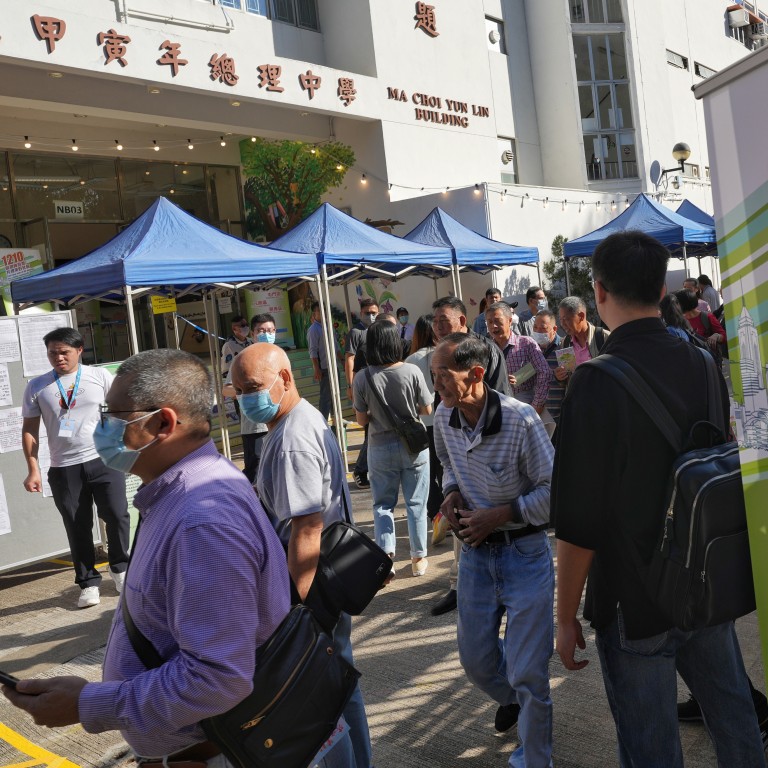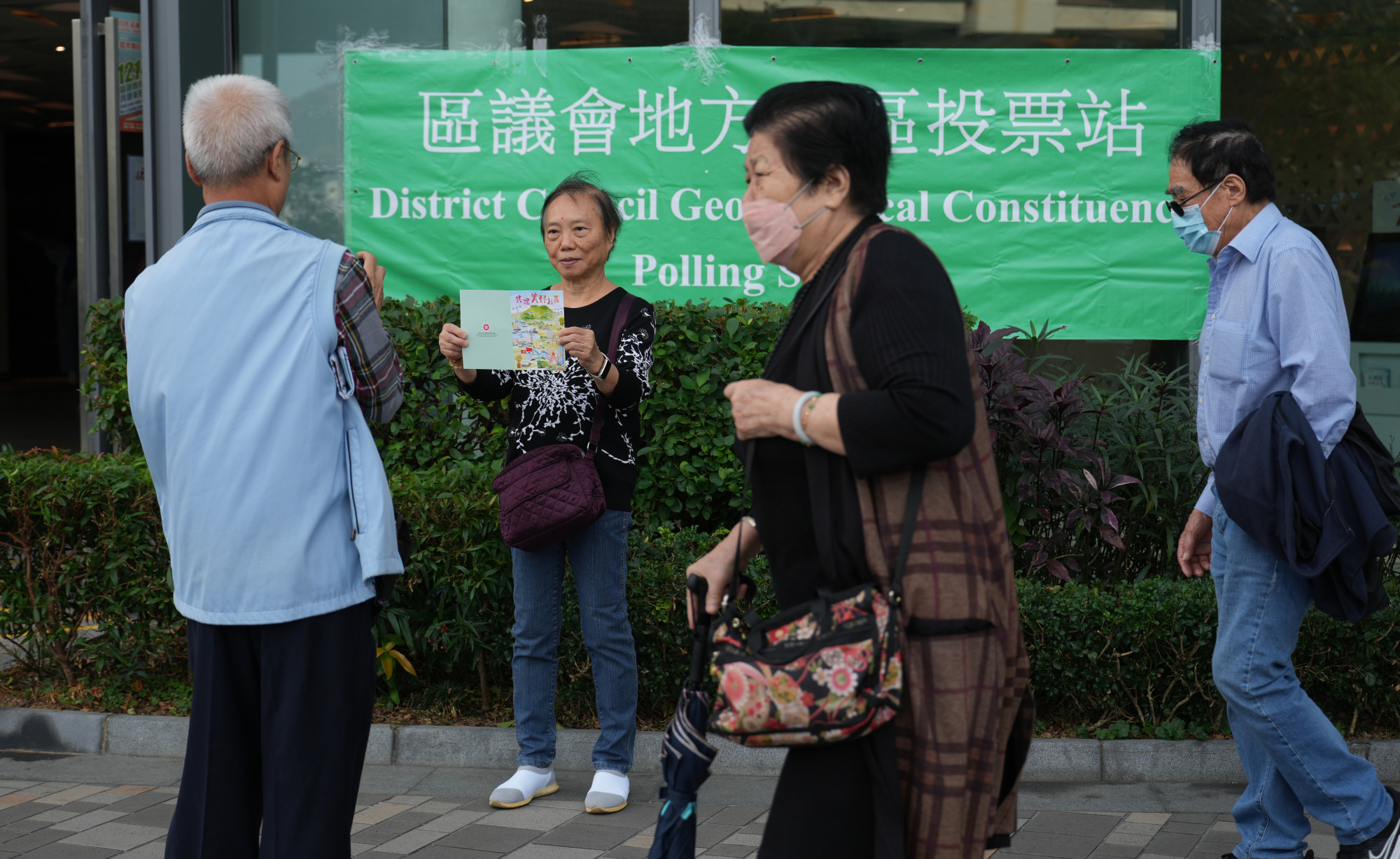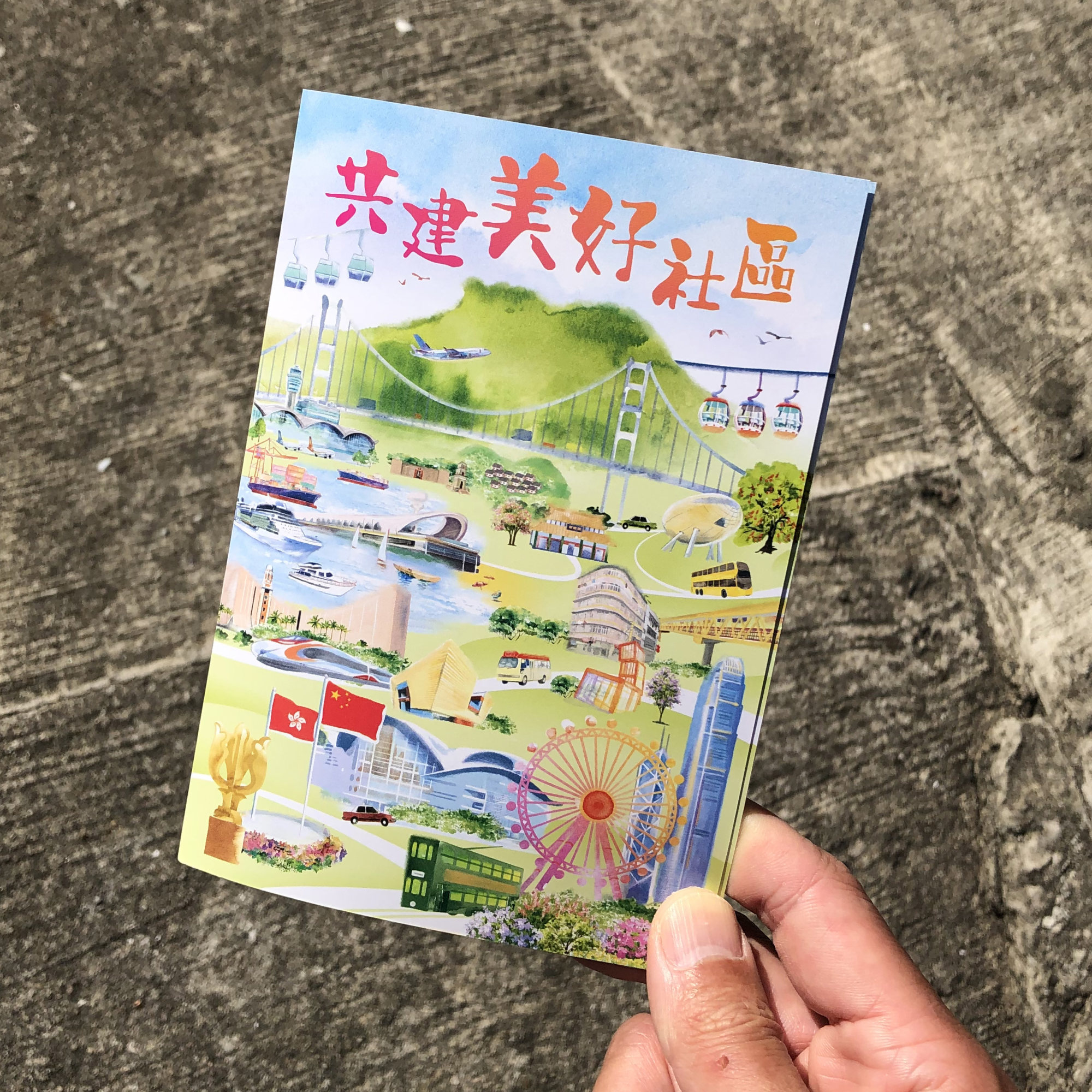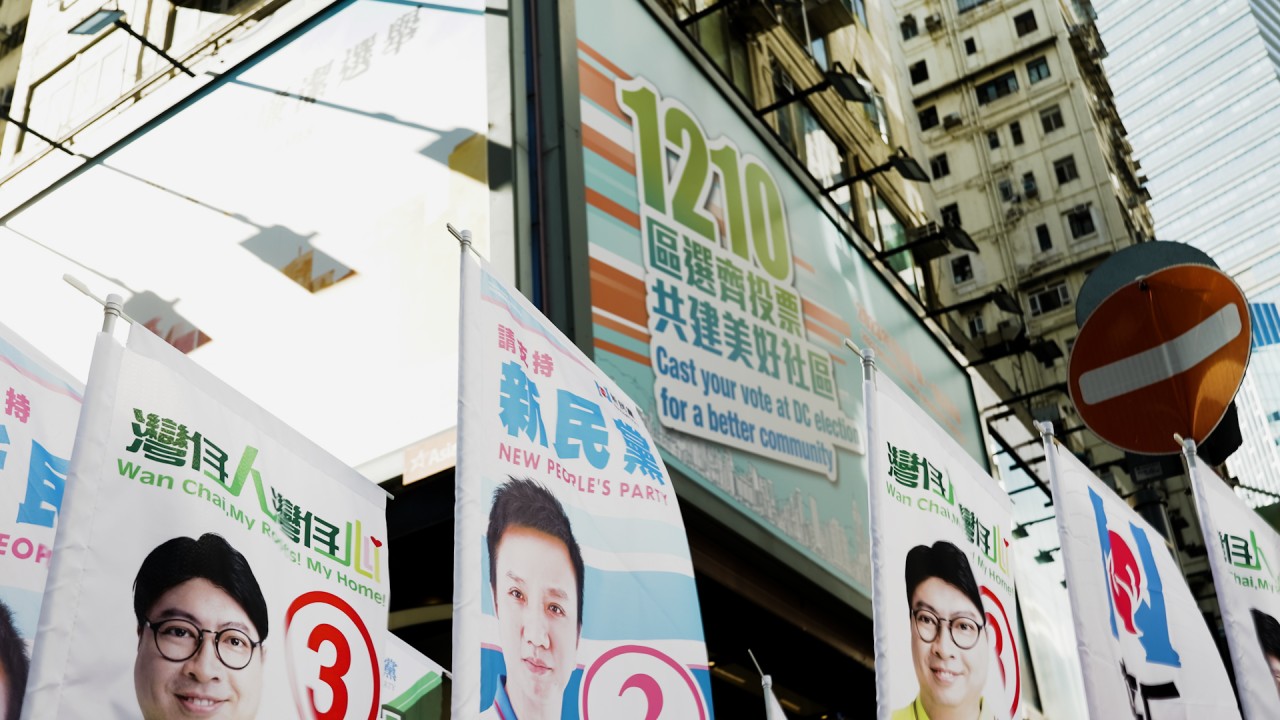
Hong Kong’s first ‘patriots-only’ district council poll reflects political tale of two cities, as some eagerly rush to vote and others shy away
- Hong Kong on election day splits into two camps, with one eager to vote out of civic duty and others giving polling stations wide berth over lack of political diversity
- ‘I thought more people would come and vote because there has been more publicity,’ one elector says after discovering sleepy atmosphere at local polling station
One side comprised enthusiastic voters who shared social media content of them casting their ballots.
While another, larger, camp was indifferent and steered clear of the more than 600 polling stations dotted across the city, with many remaining quiet throughout the 15 hours that voting was open.
Among those eager to cast their vote was a Taikoo Shing local named Yeung who returned to the polling station in her neighbourhood for the first time in four years and was surprised by the lack of crowds.

“I thought more people would come and vote because there has been more publicity,” the 50-year-old administrative worker said. “I also thought there would be a queue as people had to queue in the past.”
The previous municipal-level poll, which took place at the height of the anti-government protests in 2019, racked up an unprecedented turnout of 71.2 per cent and resulted in a landslide victory that saw the opposition camp seize 17 of the city’s 18 district councils.
Authorities later pushed to “depoliticise” the municipal bodies following the election and revamped the system earlier this year to align with Beijing’s “patriots-only” policy direction.
Back in 2019, the middle-class neighbourhood of Taikoo Shing saw a long line of electors queuing to vote at Yeung’s local polling station – a converted post office.
Long lines in various parts of the city that year prompted authorities to introduce special waiting arrangements for pregnant and elderly voters ahead of the 2021 Legislative Council poll.
But the protocols barely came into play on Sunday, with the Post observing limited foot traffic at many polling stations. Lines only formed at some sites after a brief computer meltdown disrupted services.
Over at private housing estate City One, a former opposition stronghold in Sha Tin, the Post counted 48 voters leaving a polling station over a 15-minute window just before noon. Most of the electors were middle-aged or elderly residents.
A homemaker surnamed Heung said the sleepy atmosphere at the polling station was a far cry from the crowds of voters in 2019.
“It is our responsibility as citizens to cast our vote … no matter what the result will be, it is still your responsibility as a citizen,” the 50-year-old said.
The lukewarm response to the election came even after the government went all-out to encourage people to vote, including hosting an outdoor concert and fireworks display on Saturday that was broadcast on all local free-to-air TV and radio channels.
Cross-border voters praise Hong Kong government efforts to help them cast ballots
The string of activities built on a weeks-long promotion drive that involved extensive television, social media and outdoor advertising, as well as repeat calls to vote from top officials at public events.
Some political pundits earlier warned that the absence of opposition candidates due to the revamped poll’s stringent vetting procedures could have put a damper on public interest.
Candidates cleared to compete also said they faced an uphill battle to engage with voters after being spread thin across the new and enlarged constituencies.
At a polling station near Sha Kok Estate in Sha Tin, Highways Department worker Tam Chun-kit said he made a spot decision when picking who to vote for.
“I don’t know them. I read the platform notices inside the station and chose the one that touches me,” the 29-year old said.
A visual guide to Hong Kong’s 2023 district council election
Tam, like many electors, received a thank you card from the government to “express their gratitude” for voting.
First-time voter Karen Su, meanwhile, proudly held up her card and stood next to a street sign outside a polling station in Sheung Wan for a photo. The 30-year-old from mainland China said the picture would go up on social media platform WeChat.
“There’s a sense of responsibility as a citizen … I’m sharing it as it’s quite meaningful. I have never done this before,” the 30-year-old financial services worker said.
“I feel like it’s more democratic here, as people still have some rights – no matter how much it is – to do something for a councillor they desire. But there’s none on the mainland, where basically whoever has the final say will have the final say.”

An IT specialist surnamed Chen said he had taken a photo of his card outside his local polling station in Taikoo Shing, with the 40-year-old saying he wanted to preserve the memory of casting his first ballot.
He also rejected suggestions that some people were using the cards as proof they had voted and said he had gone to the polling station because his son, a primary school student, had taken an interest in the election.
“He was suggesting to me who he likes better and wanted to take part in it, so I brought him here with me,” Chen said.
Hong Kong district council poll: voting hours extended by 90 minutes
But some scalpers took to online marketplace Carousell to sell the cards, prompting the government to debunk rumours that they could be exchanged for gifts or other tokens.
A Post check found at least 20 listings selling the cards as of 11pm on Sunday, with some giving them away for free and others charging between HK$1 (13 US cents) and HK$680.
Others gave polling stations a wide berth, citing concerns about a lack of political diversity among the hopefuls duking it out for district council seats.
Media worker Vicky Lui, 26, who was walking past one such site in Sha Tin, said: “The candidates are not the ones I support, they are from the pro-establishment camp and I don’t think they can represent us.
“I think it’s disturbing that they are using so much public money for promotions and it isn’t working.”



